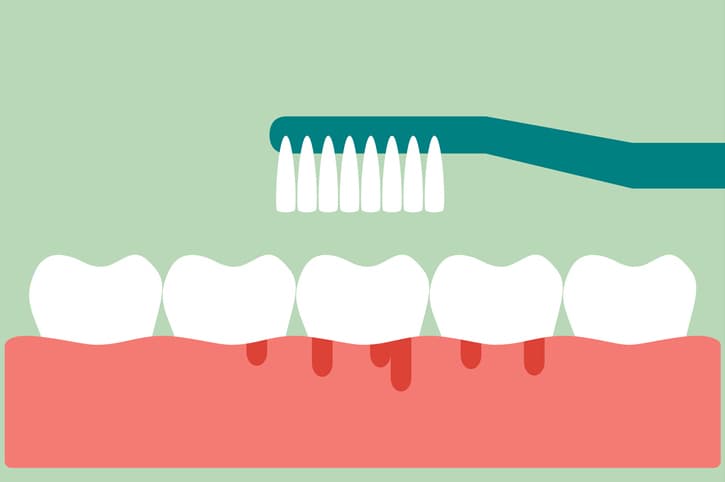
Periodontal disease refers to various levels of severity of infection in the gum tissues. Some of these conditions are relatively easy to treat while others require serious intervention to prevent tooth loss. Gum infection is a common ailment, especially in its less serious forms.
Gingivitis is inflammation of the gums and a precursor of periodontal disease. It’s also a signal that additional care is necessary to prevent it from becoming worse. Gingivitis is relatively easy to treat. If you control it quickly, you can avoid serious periodontal disease that may require much more invasive procedures.
Periodontitis is an inflammatory disease that affects the tissues supporting the teeth. Gum tissue becomes inflamed, periodontal pocketing develops where bacteria have invaded below the gum tissue and recession — gum tissue moving back from the teeth — may occur. As the infection spreads and becomes more serious, gum tissue and bone are damaged. Teeth become loose, and if the situation isn’t treated, tooth loss may occur.
Gum disease sometimes progresses without noticeable symptoms, but you might notice one or more of the following:
- Redness or swelling of the gums.
- Gums that bleed when you brush your teeth.
- Gum sensitivity.
- Recession of the gum tissue.
- Pus at the gum line.
- Bad breath or a persistent bad taste in your mouth.
You should tell your dentist if you experience any of these symptoms. At the dentist’s office, your hygienist will check the pocket depth between the gums and teeth. A deep pocket is a classic symptom of developing gum disease.
How Do I Treat Periodontal Disease?
If gingivitis is caught in the early stages, treatment might be as simple as having your teeth professionally cleaned more often, approximately every 3 to 4 months. When it progresses into periodontitis, however, treatment becomes more complicated and could involve procedures such as:
- Root planing and scaling. According to the American Academy of Periodontology (AAP), this is a deep cleaning that removes plaque and tartar under the gum line. It may be performed under local anaesthetic.
- Gum surgery. Describes surgical procedures used to repair damage caused by infection. Procedures include a gingivectomy to remove infected tissue, a flap procedure to clean below the gumline to remove bacterial infection and scale the tooth roots in cases of periodontal pockets greater than 5 millimetres, and gum grafting for cases of recessed tissue.
- Regenerative procedures. These types of treatment are used to reverse bone and tissue damage. According to the AAP, your periodontist will open the affected area to remove an infection from under the gum tissue. They will then place a bone graft, membranes (filters) or tissue-stimulating proteins that will encourage the bone and tissue to regenerate.
The worse your gum disease becomes, the more invasive the treatment is likely to be. To avoid surgery, prevention is key.
How Do I Prevent Periodontal Disease?
What is periodontal disease’s greatest enemy? Regular oral hygiene. Brushing and flossing remove plaque and food particles from your mouth and massage the gums; the latter increases blood flow to the tissue. Thorough brushing is essential. Be sure to brush for 2 minutes, and clean all tooth surfaces. Your dentist can recommend a toothbrush and demonstrate proper flossing procedure.
Regular visits to the dentist are vital to gum disease prevention. Your dentist will evaluate your gums and other oral tissues each time you are in the office. Measuring the pockets around your teeth will allow him to detect early warning signs of gum disease.
Taking care of your gums is as important to the long-term health of your mouth as taking care of your teeth. In fact, adults lose their teeth mostly as a result of gum disease. If you keep close track of your oral health and practice regular oral hygiene, you will be much less likely to suffer this unpleasant fate.
